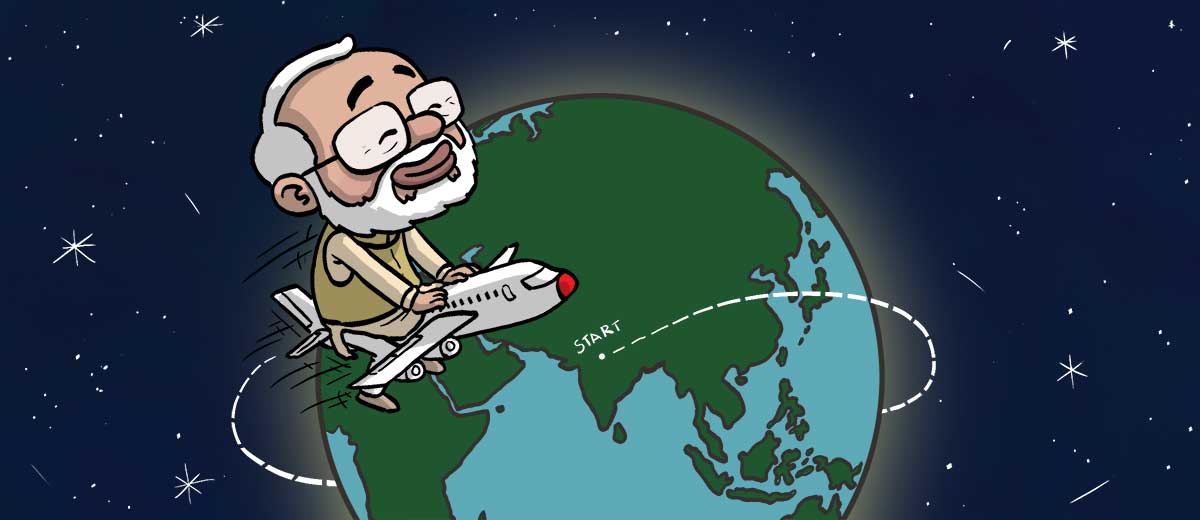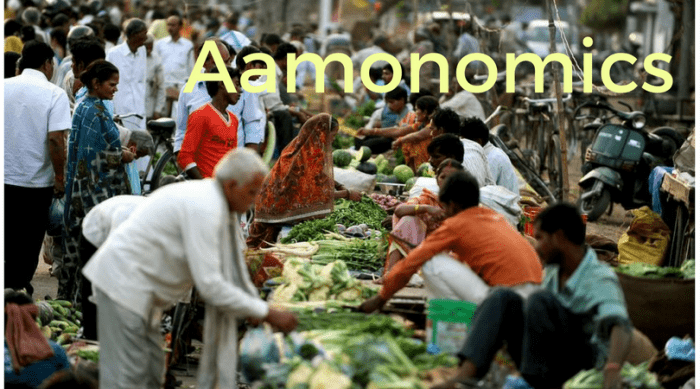Reading Time: 5 minutes
The Modi government has especially lined up heads of governments with a well thought-out agenda – strengthening the economy and working on development. At least, let’s hope the agendas are achieved and not merely a PR exercise. This time it’s yet another strong European power – France. Here’s an analysis by Navodita, our Associate Editor, in the weekly column. A Different Truths exclusive.
The recent visit by French President Emmanuel Macron indicates that the Modi government has especially lined up heads of governments with a well thought-out agenda – strengthening the economy and working on development. At least, let’s hope the agendas are achieved and not merely a PR exercise. 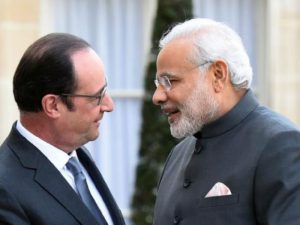 This time it’s yet another strong European power – France. Macron’s visit was viewed with much anticipation and has brought with it several positives. The most significant of all deals on Macron’s India visit was the solar alliance and the visit of the President to Varanasi and Mirzapur. This speaks volumes about the intention of the government to think about the energy that is sustainable, investments that yield better returns.
This time it’s yet another strong European power – France. Macron’s visit was viewed with much anticipation and has brought with it several positives. The most significant of all deals on Macron’s India visit was the solar alliance and the visit of the President to Varanasi and Mirzapur. This speaks volumes about the intention of the government to think about the energy that is sustainable, investments that yield better returns.
So what is the international solar alliance all about? Its founding ceremony was held in New Delhi on March 11. This was followed by the first summit of the Alliance. The International Solar Alliance (ISA) was unveiled by Prime Minister Narendra Modi and then French President Francois Hollande at the U.N. Climate Change Conference in Paris on November 30, 2015. The main idea was to form a coalition of solar resource-rich countries so that they may collaborate in order to address the identified gaps in their energy requirements through a common unified approach. Hence in order to achieve this, the ISA has set a target of 1TW of solar energy by 2030, which current French President Emmanuel Macron said would require $1 trillion to achieve.
The ISA is open to 121 prospective member countries, most of them located between the Tropics of Cancer and Capricorn as this is the region worldwide with a lot of surplus bright sunlight throughout the year. So far, only 56 countries have signed the ISA Framework Agreement some of which include Australia, Bangladesh, Benin, Brazil, Burkina Faso, Cabo Verde, Cambodia, Chad, Chile, Djibouti, Dominican Republic, DR Congo, Equatorial Guinea, Ethiopia, Fiji, France, Gambia, Gabon, Ghana, Guinea, Guinea-Bissau, Guyana, India, Kiribati, Liberia, Madagascar, Malawi, Mali, Mauritius, Mozambique, Nauru, Niger, Nigeria, Peru, Rwanda, Sao Tome, Senegal, Seychelles, Somalia, South Sudan, Sri Lanka, Sudan, Suriname, Tanzania, Togo, Tonga, Tuvalu, UAE, Uganda, Vanuatu, Venezuela and Yemen.
India has played a significant role in this alliance as apart from being a founding member it is the host as well as a major contributor to achieving the target set out by the group of nations. The ISA is the first business international body that will have a secretariat in India. India, with a target to produce 100 GW of solar energy by 2022, would account for a tenth of ISA’s total goal.
This said and done, it’s time to gauge where does India stand vis-à-vis its economic status in the world. 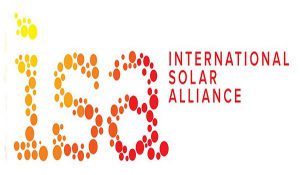 Well, it is being said that India should for some time keep a low profile on the impending trade war spectre between nations. A series of protectionist economic measures by the US last week signalled the start of a dangerous phase for the global economy. US President Donald Trump raised import tariff on steel and aluminium to 25% and 10% respectively. He also added that the US would implement a ‘reciprocal tax programme’ at some point naming specifically, India and China in this regard. India must avoid being clubbed with China at all costs. The threat of a ‘reciprocal tax programme’ is especially dangerous as it would, among other things, tear up WTO rules which have enabled the global economy to prosper. Meanwhile, next week, following an Indian initiative, ministers of 40 countries are to meet in New Delhi to find ways to break the trade deadlock at WTO. This point needs immediate thinking and cautious approach. A smart strategy would be to let economic heavyweights like the US, the European Union (EU) and China slug it out and allow the dust to settle instead of taking up an activist position. If the US manages to change China’s mercantilist approach, that wouldn’t be a bad outcome from India’s point of view as Beijing imposes stiff barriers to Indian imports, too.
Well, it is being said that India should for some time keep a low profile on the impending trade war spectre between nations. A series of protectionist economic measures by the US last week signalled the start of a dangerous phase for the global economy. US President Donald Trump raised import tariff on steel and aluminium to 25% and 10% respectively. He also added that the US would implement a ‘reciprocal tax programme’ at some point naming specifically, India and China in this regard. India must avoid being clubbed with China at all costs. The threat of a ‘reciprocal tax programme’ is especially dangerous as it would, among other things, tear up WTO rules which have enabled the global economy to prosper. Meanwhile, next week, following an Indian initiative, ministers of 40 countries are to meet in New Delhi to find ways to break the trade deadlock at WTO. This point needs immediate thinking and cautious approach. A smart strategy would be to let economic heavyweights like the US, the European Union (EU) and China slug it out and allow the dust to settle instead of taking up an activist position. If the US manages to change China’s mercantilist approach, that wouldn’t be a bad outcome from India’s point of view as Beijing imposes stiff barriers to Indian imports, too.
While these are the pertinent issues on the global front, there’s a lot more going on in the domestic sector that the government needs to think about. As elections approach, the government should leave no stone unturned and work towards improving conditions for farmers. The recent farmer agitation in Maharashtra proves that policies need a rethinking to be done. Long farmers’ protest was called off after the state government agreed to most of their demands and gave a written assurance and timeframe for implementing them. The CPM-affiliated Akhil Bharatiya Kisan Sabha had brought in farmers from across the state, who trudged more than 180 km from Nashik to Mumbai. Popular support the cause received in Mumbai set alarm bells ringing in BJP. Congress, NCP and even ally Shiv Sena supported the movement essentially led by CPM’s farm wing. This goes onto indicate that the fight may be tough for the BJP if all opposition forces decide to unite against them in the forthcoming 2019 polls.
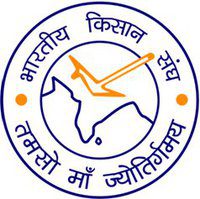 Meanwhile, RSS affiliate Farmers’ union, Bharatiya Kisan Sangh has told the Sangh and the government that the Centre’s schemes are only empowering the rich farmers and the ones who deserve help don’t even qualify for loans. The organisation though has denied support to the ongoing farmer march in Maharashtra, specified in its appeal to the sangha that farmers have to be united across party banners but political parties should not use them as tools. Farmers are the soul of the nation and they should not go against the national interest.
Meanwhile, RSS affiliate Farmers’ union, Bharatiya Kisan Sangh has told the Sangh and the government that the Centre’s schemes are only empowering the rich farmers and the ones who deserve help don’t even qualify for loans. The organisation though has denied support to the ongoing farmer march in Maharashtra, specified in its appeal to the sangha that farmers have to be united across party banners but political parties should not use them as tools. Farmers are the soul of the nation and they should not go against the national interest.
As elections are a year away, ‘good economics’ will remain high on everyone’s agenda as questions will be raised on GST and demonetisation; what’s more jobs for the unemployed will be the main issue on manifestos, too.
©Navodita Pande
Photos from the Internet
#ForeignRelations #IndianGovernment #ForeignPolicyOfModi #GST #ISA #GlobalPolicy #Aamonomics #DifferentTruths

